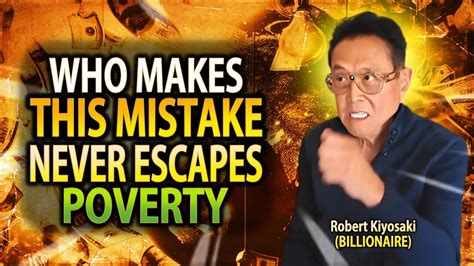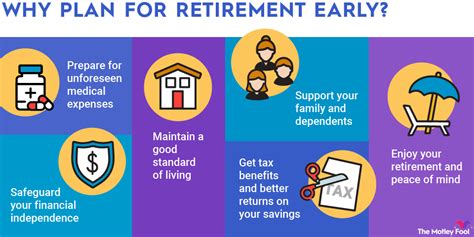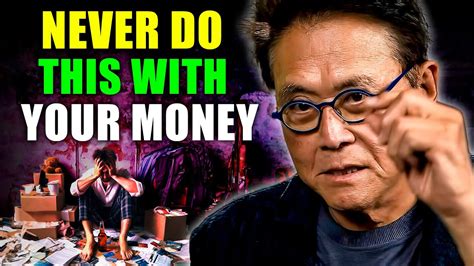
Robert Kiyosaki, author of “Rich Dad Poor Dad,” warns that avoiding two key money mistakes is crucial to escaping poverty: blaming others and failing to invest in financial literacy. He argues that taking responsibility for one’s financial situation and prioritizing education are essential steps towards building wealth.
Robert Kiyosaki, the personal finance guru and author of the bestselling book “Rich Dad Poor Dad,” has once again stirred the pot with his latest advice on how to escape poverty. In a recent statement, Kiyosaki emphasized that the most common mistakes preventing individuals from achieving financial freedom are not external factors, but rather internal ones: blaming others for one’s financial woes and failing to invest in financial education.
Kiyosaki, known for his contrarian views and direct approach, argues that blaming the government, the economy, or one’s employer is a futile exercise that only serves to perpetuate a cycle of poverty. “Most poor people blame somebody else,” Kiyosaki stated. He contends that instead of focusing on external forces, individuals should take responsibility for their own financial situations and actively seek to improve their financial literacy.
According to Kiyosaki, the failure to invest in financial education is another critical error that traps people in poverty. He believes that traditional education systems often fail to equip individuals with the practical knowledge and skills necessary to navigate the complexities of the financial world. He advocates for self-education through books, seminars, and mentorship from financially successful individuals. “Financial literacy is the foundation of wealth,” Kiyosaki asserts, encouraging people to learn about assets, liabilities, and how money truly works.
Taking Responsibility: The First Step to Financial Freedom
Kiyosaki’s emphasis on personal responsibility is a recurring theme in his financial teachings. He argues that blaming external factors is a form of self-sabotage that prevents individuals from taking proactive steps to improve their financial standing. By shifting the focus inward, individuals can identify areas where they have control and begin to make positive changes.
“It’s easy to blame the government, the economy, or your boss,” Kiyosaki explains. “But the truth is, you are responsible for your own financial destiny.” He encourages people to adopt a proactive mindset and take ownership of their financial decisions.
This concept of personal responsibility extends beyond simply avoiding blame. It also involves taking initiative to learn about personal finance, developing a budget, managing debt, and investing wisely. Kiyosaki believes that these are all essential steps towards building wealth and achieving financial independence.
The Power of Financial Education
Kiyosaki’s second key point revolves around the critical importance of financial education. He argues that traditional education systems often fail to provide students with the practical financial knowledge they need to succeed in the real world. As a result, many people graduate from school without a clear understanding of concepts such as budgeting, investing, and debt management.
“Schools teach you how to be an employee, not an employer,” Kiyosaki contends. “They don’t teach you how to manage money, build assets, or create wealth.” He believes that this lack of financial education is a major contributing factor to the widespread problem of poverty.
To address this gap, Kiyosaki advocates for self-education through a variety of resources, including books, seminars, and mentorship. He encourages people to seek out information from reliable sources and to learn from the experiences of financially successful individuals.
“The more you learn about money, the better your chances of becoming wealthy,” Kiyosaki states. He recommends focusing on understanding key financial concepts such as:
- Assets vs. Liabilities: Kiyosaki defines assets as things that put money in your pocket, while liabilities take money out of your pocket. He emphasizes the importance of acquiring assets and minimizing liabilities.
- Cash Flow: Understanding how money flows in and out of your life is crucial for managing your finances effectively. Kiyosaki encourages people to track their income and expenses to identify areas where they can save money and increase their cash flow.
- Investing: Investing is the process of putting your money to work to generate more money. Kiyosaki advocates for investing in assets such as real estate, stocks, and businesses.
Kiyosaki’s Controversial Views and Criticisms
While Kiyosaki’s message of personal responsibility and financial education resonates with many people, his views have also drawn criticism. Some critics argue that his advice is overly simplistic and doesn’t take into account the complex systemic factors that contribute to poverty, such as discrimination, lack of access to education and healthcare, and economic inequality.
Others criticize Kiyosaki’s investment strategies, which often involve taking on significant debt and investing in speculative assets. These critics argue that such strategies are too risky for the average person and could lead to financial ruin.
Despite these criticisms, Kiyosaki remains a popular and influential figure in the personal finance world. His books have sold millions of copies worldwide, and he continues to travel the globe, sharing his message of financial empowerment.
The Broader Context of Financial Literacy
The importance of financial literacy is increasingly recognized by policymakers, educators, and financial institutions. Studies have shown that financially literate individuals are more likely to save for retirement, manage their debt effectively, and make informed investment decisions.
In response to the growing need for financial education, many organizations are working to promote financial literacy among people of all ages. These initiatives include:
- Financial literacy programs in schools: Many schools are now incorporating financial literacy into their curriculum, teaching students about budgeting, saving, and investing.
- Community-based financial education workshops: These workshops provide free or low-cost financial education to adults in the community.
- Online financial education resources: Numerous websites and online platforms offer free financial education resources, including articles, videos, and interactive tools.
Beyond Individual Action: Systemic Solutions to Poverty
While Kiyosaki’s emphasis on personal responsibility and financial education is valuable, it’s important to recognize that poverty is a complex issue with deep-rooted systemic causes. Addressing poverty effectively requires a multi-faceted approach that includes both individual empowerment and systemic reforms.
Some of the systemic solutions to poverty include:
- Investing in education: Providing access to quality education for all is crucial for breaking the cycle of poverty.
- Creating jobs: Creating jobs with livable wages is essential for ensuring that people have the opportunity to earn a decent living.
- Expanding access to healthcare: Access to affordable healthcare is critical for preventing illness and ensuring that people can work and contribute to the economy.
- Addressing discrimination: Discrimination based on race, gender, and other factors can limit opportunities for certain groups of people and perpetuate poverty.
- Strengthening social safety nets: Social safety nets, such as unemployment insurance and food assistance programs, can provide a safety net for people who are struggling financially.
Conclusion: A Balanced Approach to Financial Freedom
Robert Kiyosaki’s message of personal responsibility and financial education offers valuable insights for individuals seeking to escape poverty and achieve financial freedom. By taking ownership of their financial situations and investing in their financial literacy, people can empower themselves to make better financial decisions and build wealth.
However, it’s also important to recognize that poverty is a complex issue with systemic causes that require broader solutions. Addressing poverty effectively requires a balanced approach that includes both individual empowerment and systemic reforms. While Kiyosaki’s advice focuses on individual action, it’s crucial to advocate for policies and programs that create a more equitable and just society for all. Ultimately, achieving true financial freedom requires both personal responsibility and a commitment to creating a world where everyone has the opportunity to thrive.
Expanding on Kiyosaki’s Points
To fully grasp Kiyosaki’s advice, it’s helpful to delve deeper into the practical implications of his two main points: avoiding blame and prioritizing financial education.
1. Avoiding Blame: Taking Control of Your Financial Destiny
Kiyosaki’s admonition against blaming others isn’t just about shifting responsibility; it’s about recognizing the power of agency. When individuals blame external factors, they essentially relinquish control over their financial lives. This can manifest in several ways:
-
The “Victim” Mentality: This mindset sees the individual as a passive recipient of circumstances beyond their control. They might say things like, “I’m poor because the government doesn’t care about us” or “I can’t get ahead because the system is rigged.” While systemic inequalities undoubtedly exist, dwelling on them without taking action perpetuates a sense of helplessness.
-
Lack of Proactive Action: Blaming others often leads to inaction. If someone believes their financial struggles are solely due to a lack of job opportunities, they might not invest time in skills development or networking, hindering their chances of finding better employment.
-
Missed Opportunities: A blaming mindset can blind individuals to potential opportunities for financial growth. They might dismiss entrepreneurial ventures as too risky or fail to recognize the value of investing in assets.
To break free from this cycle, Kiyosaki encourages a proactive approach:
-
Identify Controllable Factors: Focus on aspects of your financial life that you can directly influence, such as your spending habits, savings rate, and debt management.
-
Take Ownership of Your Mistakes: Acknowledge past financial missteps and learn from them. This is crucial for avoiding similar mistakes in the future.
-
Embrace a Growth Mindset: Believe that your financial situation can improve with effort and education. This belief fuels motivation and resilience in the face of challenges.
2. Prioritizing Financial Education: Building a Foundation for Wealth
Kiyosaki emphasizes that financial education is not just about understanding basic concepts like budgeting and saving; it’s about developing a deep understanding of how money works and how to make it work for you. This includes:
-
Understanding Financial Statements: Being able to read and interpret financial statements (income statement, balance sheet, and cash flow statement) is essential for understanding the financial health of a business or investment.
-
Mastering Investment Strategies: Explore different investment options, such as stocks, bonds, real estate, and businesses. Learn about the risks and rewards associated with each option and develop a strategy that aligns with your financial goals and risk tolerance.
-
Leveraging Debt Wisely: Kiyosaki distinguishes between good debt (debt that helps you acquire assets) and bad debt (debt that drains your cash flow). He encourages the strategic use of good debt to finance investments that generate income.
-
Building a Business: Kiyosaki advocates for entrepreneurship as a powerful way to build wealth. Starting a business allows you to control your income, build assets, and create jobs.
-
Tax Strategies: Understanding tax laws and regulations can help you minimize your tax burden and maximize your wealth.
How to acquire this financial education, according to Kiyosaki, involves:
-
Reading Books: Kiyosaki’s “Rich Dad Poor Dad” is a popular starting point, but there are many other excellent books on personal finance and investing.
-
Attending Seminars and Workshops: Look for reputable seminars and workshops that offer practical advice and guidance on financial planning and investing.
-
Seeking Mentorship: Find a mentor who has achieved financial success and is willing to share their knowledge and experience.
-
Networking with Financially Savvy Individuals: Surround yourself with people who are knowledgeable about money and investing.
-
Continuous Learning: Financial education is an ongoing process. Stay up-to-date on the latest financial trends and strategies by reading financial news, attending webinars, and taking online courses.
The Role of Systemic Factors
While Kiyosaki focuses on individual responsibility and financial education, it’s important to acknowledge the significant role that systemic factors play in perpetuating poverty. These factors include:
-
Economic Inequality: The widening gap between the rich and the poor makes it increasingly difficult for low-income individuals to climb the economic ladder.
-
Lack of Access to Education and Healthcare: Limited access to quality education and healthcare can hinder individuals’ ability to secure good-paying jobs and manage their finances effectively.
-
Discrimination: Discrimination based on race, gender, and other factors can limit opportunities for certain groups of people and contribute to poverty.
-
Predatory Lending Practices: High-interest loans and other predatory lending practices can trap vulnerable individuals in a cycle of debt.
Addressing these systemic issues requires policy changes, such as:
-
Investing in Education and Job Training: Providing access to affordable education and job training programs can help individuals acquire the skills they need to succeed in the workforce.
-
Raising the Minimum Wage: Increasing the minimum wage can help low-wage workers earn a living wage and escape poverty.
-
Expanding Access to Healthcare: Ensuring that everyone has access to affordable healthcare can prevent illness and improve overall financial stability.
-
Regulating the Financial Industry: Implementing stricter regulations on the financial industry can protect consumers from predatory lending practices.
-
Addressing Discrimination: Enforcing anti-discrimination laws and promoting diversity and inclusion can create a more equitable society for all.
Conclusion: A Holistic Approach to Financial Well-being
Robert Kiyosaki’s advice provides a valuable framework for individuals seeking to improve their financial situations. By avoiding blame and prioritizing financial education, people can empower themselves to make better financial decisions and build wealth.
However, it’s essential to recognize that individual action alone is not enough to overcome the systemic barriers that contribute to poverty. Addressing poverty effectively requires a holistic approach that includes both individual empowerment and systemic reforms. By working together to create a more equitable and just society, we can ensure that everyone has the opportunity to achieve financial well-being.
FAQ: Robert Kiyosaki’s Advice on Escaping Poverty
Q1: What are the two key money mistakes Robert Kiyosaki says people should avoid to escape poverty?
A1: According to Robert Kiyosaki, the two key mistakes are blaming others for your financial situation and failing to invest in financial education. He emphasizes taking personal responsibility and actively seeking financial knowledge.
Q2: Why does Kiyosaki believe that blaming others is a mistake?
A2: Kiyosaki argues that blaming external factors like the government or the economy prevents individuals from taking proactive steps to improve their financial standing. He believes that taking responsibility for one’s finances is the first step toward building wealth.
Q3: What does Kiyosaki mean by “investing in financial education”?
A3: Investing in financial education means actively learning about personal finance, including budgeting, investing, understanding assets and liabilities, and mastering cash flow. Kiyosaki recommends self-education through books, seminars, mentorship, and networking with financially savvy individuals.
Q4: Are there criticisms of Kiyosaki’s financial advice?
A4: Yes, some critics argue that Kiyosaki’s advice is overly simplistic and doesn’t adequately address systemic factors like discrimination and economic inequality. Others criticize his investment strategies as being too risky for the average person.
Q5: Besides individual actions, what other factors are important for addressing poverty?
A5: Systemic factors such as economic inequality, lack of access to education and healthcare, and discrimination play a significant role in perpetuating poverty. Addressing these issues requires policy changes like investing in education and job training, raising the minimum wage, expanding access to healthcare, and enforcing anti-discrimination laws.
Article Length: 2210 words









